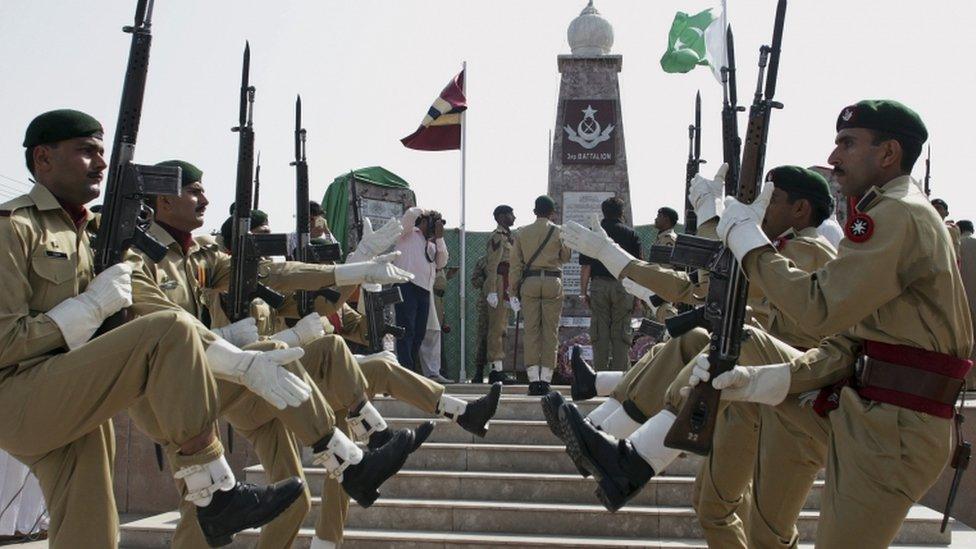Pakistan-US relations: What issues does Pakistan's military face?
- Published
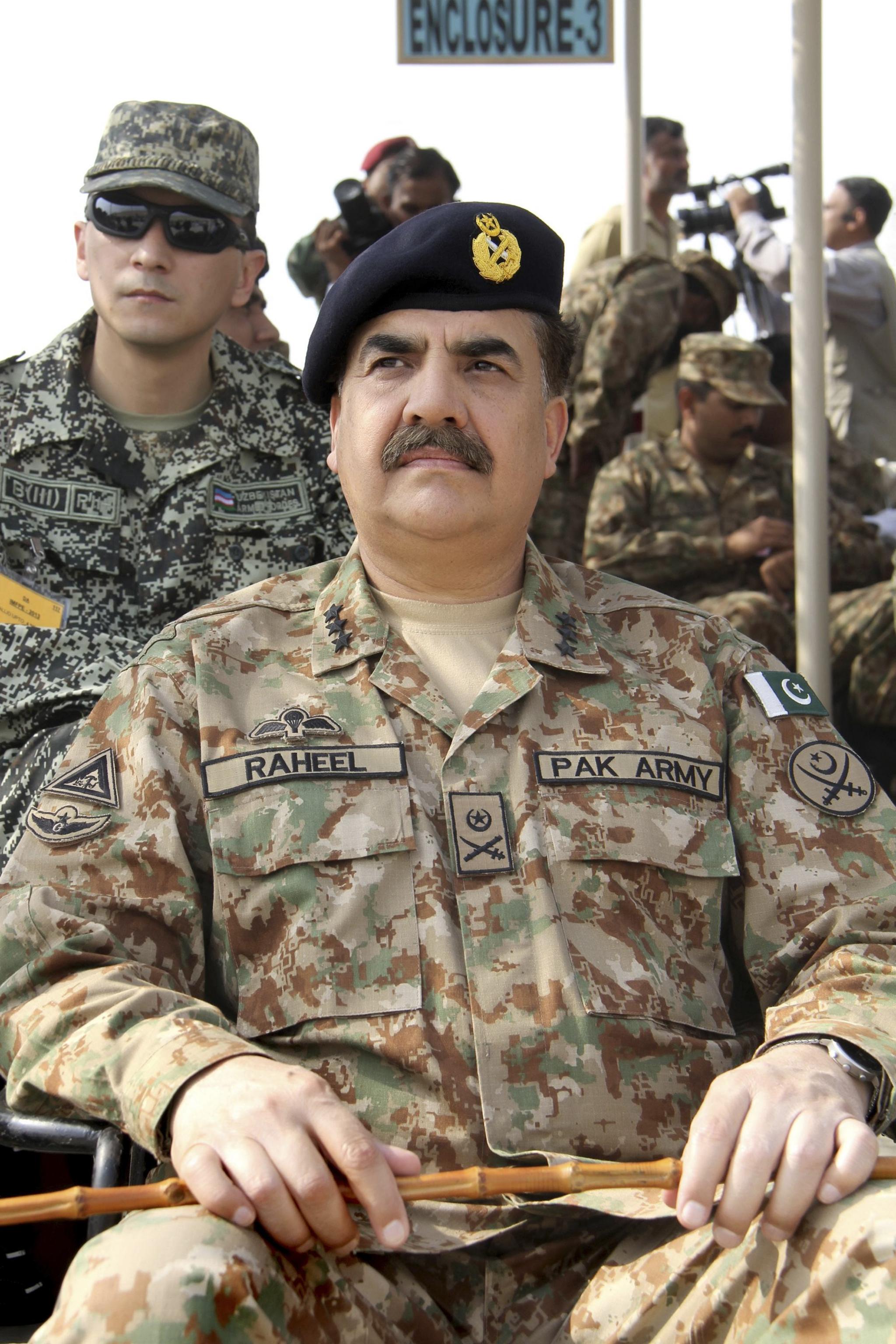
Pakistan's army chief, Gen Raheel Sharif, faces many challenges in his relationship with the US
Pakistan army chief Gen Raheel Sharif's trip to Washington is his second in less than a year.
In 2014, he was given red carpet treatment in recognition of the Pakistani military's long-demanded ground offensive to clear militant sanctuaries in North Waziristan, on the border with Afghanistan.
This time, the significance of his trip was slightly dented when an unnamed Pentagon official revealed the visit was requested by Gen Sharif, not Washington.
But observers have not missed the fact that more doors are being opened for him in Washington than for most other military chiefs from elsewhere in the world.
Apart from nearly the entire US military leadership, Gen Sharif has also held meetings with Secretary of State John Kerry, Secretary of Defense Ashton Carter and the head of the CIA, John Brennan.
He is also likely to meet US Vice President Joe Biden and National Security Adviser Susan Rice later on Thursday.
'Tough talking'
Coming as it does on the heels of Pakistani Prime Minister Nawaz Sharif's visit, such a reception for the army chief appears to support the view that it's the military and not the politicians who control Pakistan's defence and foreign affairs.
"Given the current reality of power management in Pakistan, it is only natural that the Americans would want to talk to the military when it comes to discussing their chief concerns in this region," says Hasan Askari Rizvi, a Lahore-based defence analyst.
"The Americans would like to talk about counter-terrorism, or Pakistan's role in Afghanistan, or issues related to the transfer of military hardware and security funds - these are all areas which are controlled by the military," he says.
Pakistan depends on the US for the bulk of its military hardware and security funds. But over the last few years it has also attracted flak from some quarters in Washington for its "double-dealing" in Afghanistan.
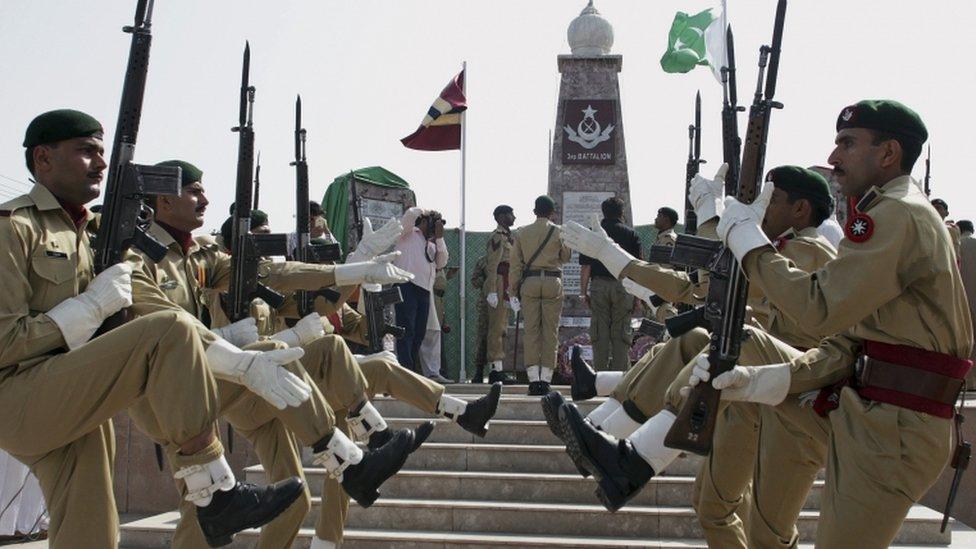
Pakistan's army is hugely powerful
Some tough talking was expected during Gen Sharif's stay in Washington, but many feel the Paris attacks may have eclipsed the Afghanistan issue for now.
In the absence of any detailed briefing on talks by both Pakistani and American officials, it is difficult to know what concrete proposals have been discussed or decisions made. But there is wide agreement within informed circles on which issues may have been on the table.
Taliban
The Americans want Pakistan to eliminate militant infrastructure, including the Afghanistan-focused Haqqani network, the India-focused Lashkar-e Taiba (LeT) and their various affiliates.
They have also been pushing Pakistan to use its leverage with the Taliban to open peace talks with Kabul.
The second round of an intra-Afghan dialogue facilitated by Pakistan with US and Chinese support was abandoned in July when Kabul blamed Pakistan for hiding the news of Taliban chief Mullah Omar's death.
Pakistan blamed Afghan intelligence for deliberately leaking this news to scuttle the talks.
Afghanistan, meanwhile, blames Pakistan for the surge in Taliban violence since the talks were abandoned.
Pakistan has been pushing for a power-sharing deal for the Taliban in Kabul, including the Haqqani network, and would like the Americans to "adopt" them as a lesser evil - because the Taliban have a localised agenda and if denied space, they could be gobbled up by the pan-Islamic militant group, Islamic State.
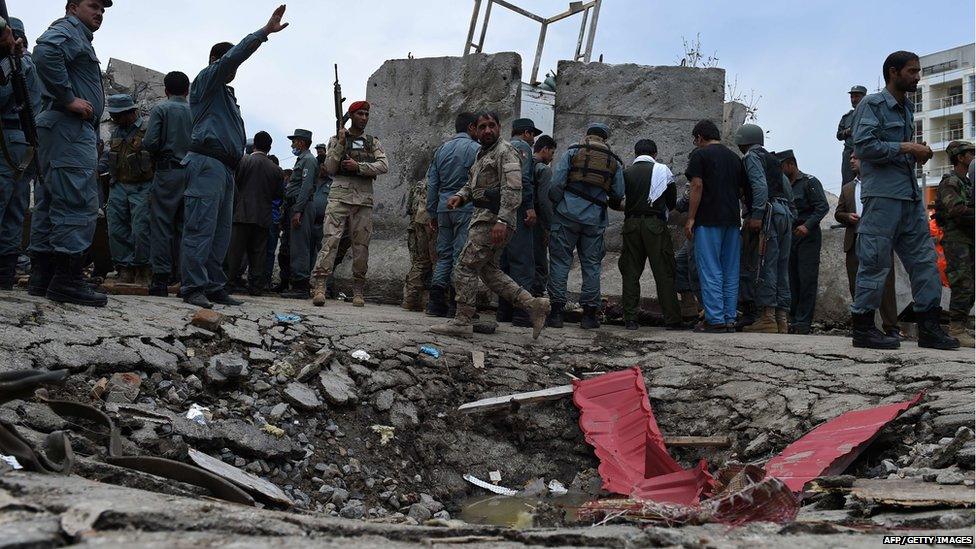
Pakistan argues that eliminating the Taliban could lead to an IS takeover in the country
Lately, Pakistan has also been complaining about an increasingly belligerent India, which it says is putting pressure on its eastern border, thereby hampering its efforts to eliminate the "bad boys" in its tribal areas to the west.
In addition, Pakistan has accused India of using Afghan territory to foment trouble in the Pakistani regions of Balochistan and Karachi.
Analysts say Pakistan is likely to argue that in the given situation, any action against anti-India groups like LeT may turn them against Pakistan and worsen its problems with India.
Nuclear arsenal
There is also the issue of nuclear weapons, which fall in the exclusive domain of the military.
"The Americans will certainly have raised the issue of Pakistan's growing nuclear arsenal which at the current rate may become the third or even the second largest in the world by 2020," says Ayesha Siddiqa, another defence analyst based in Islamabad.
Americans have been concerned about Pakistan's short-range battlefield nuclear weapons falling into militant hands, as well as its long-range weapons that can hit targets as far away as the Nicobar Islands in the Indian Ocean where India's nuclear arsenal may have been stacked, she says.
In return, there have been suggestions by some American think-tanks that Pakistan could be offered membership of the Nuclear Suppliers Group (NSG), with legitimate access to nuclear research and technology.
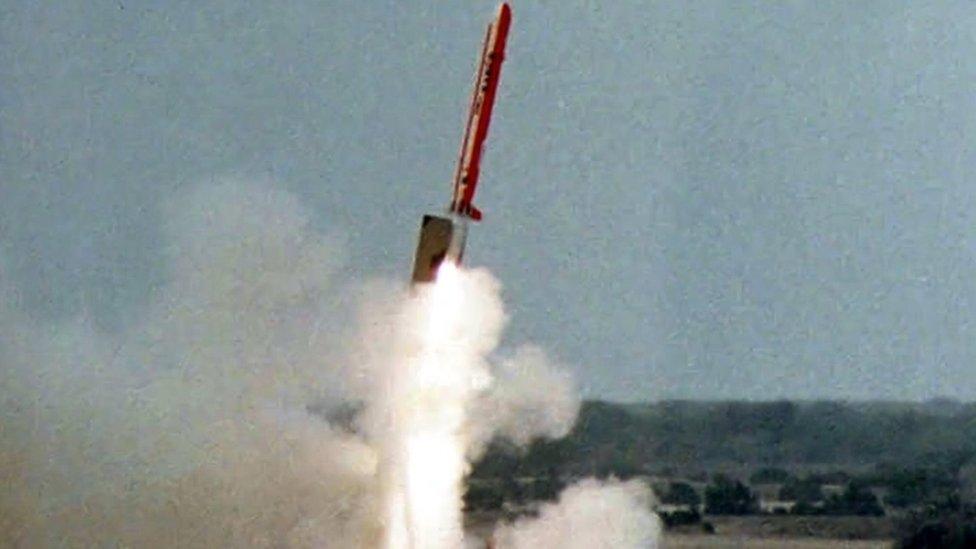
Pakistan has tested missiles capable of carrying nuclear weapons in the past
But Pakistan may not be keen because it already has access to technology through China, and also because technology available through the NSG may be prohibitively expensive.
Analysts say the situation is tricky, and there is little the Pakistanis would be willing to offer in strategic terms, although they may offer some tactical support in Afghanistan.
So how is the US likely to respond to this security calculus?
There have been veiled warnings that the US may block some $300m in coalition support funds owed to Pakistan if the US Department of Defence fails to certify that Pakistanis are acting against the Haqqani network.
But analysts suspect Pakistan will stick to its guns, knowing that the Western powers have their hands full with IS at the moment and will continue to depend on Pakistan to deliver in Afghanistan.
- Published27 November 2013
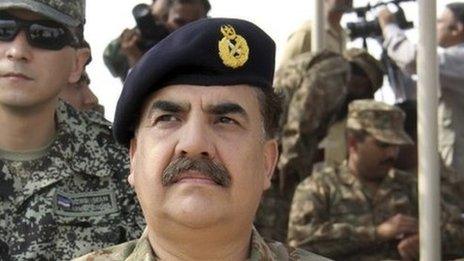
- Published15 November 2015
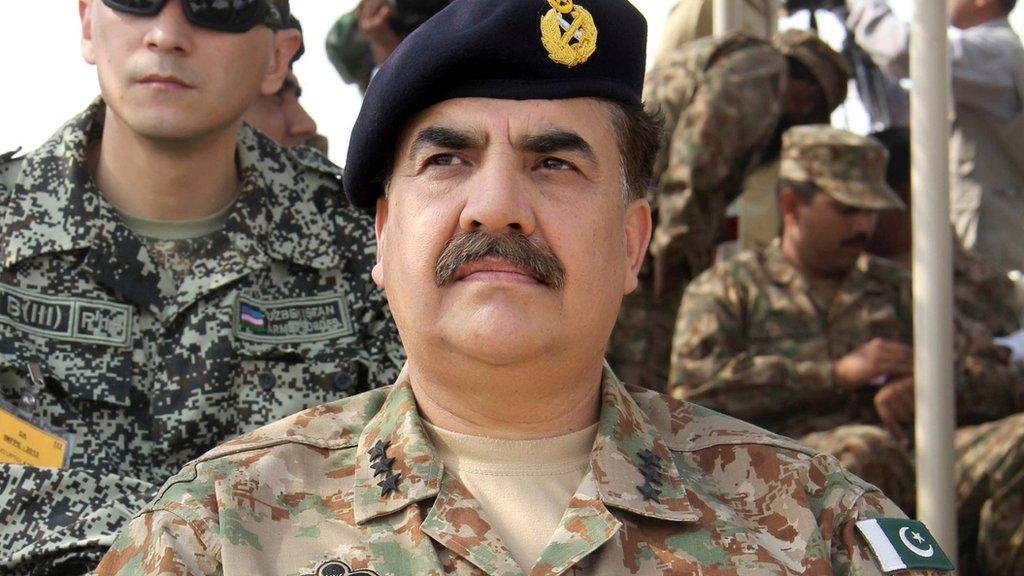
- Published28 September 2015
